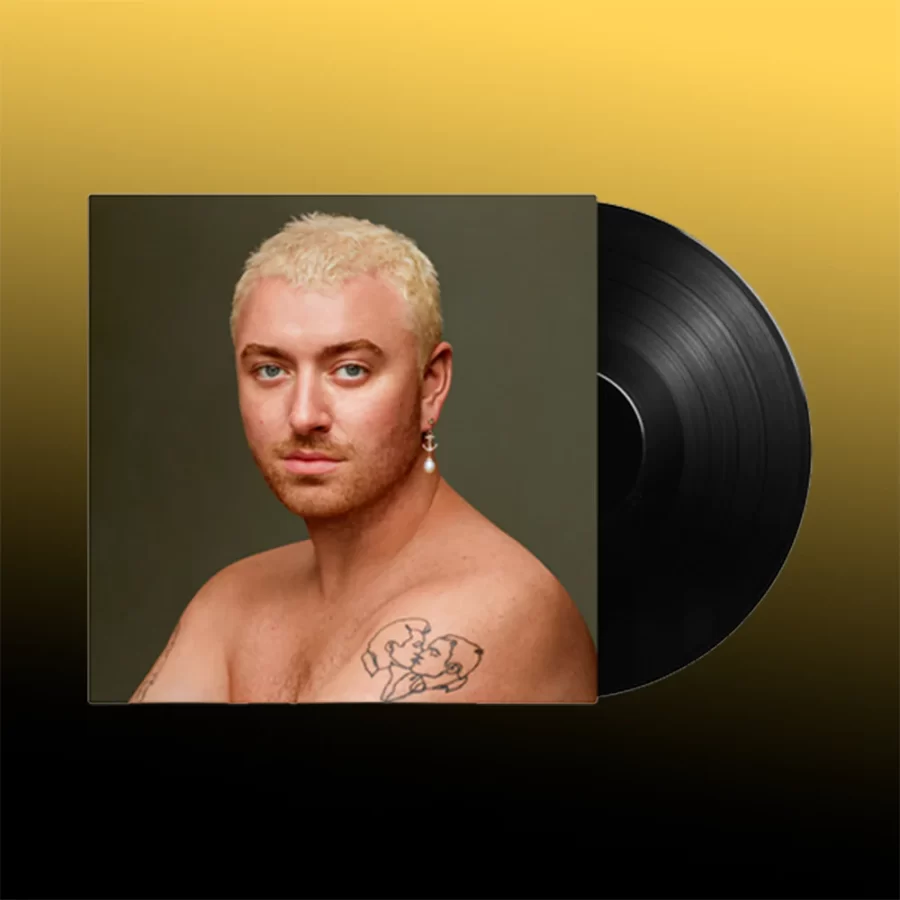Review: Sam Smith’s ‘Gloria’: Spin or skip?
February 27, 2023
Last month, Sam Smith delivered their fourth full-length album, “Gloria.” The album marks the artist’s return after 2020’s “Love Goes.” In this album, Smith explores themes of self-acceptance and personal growth, as well as their experience as a queer person.
Smith blends R&B, dancehall, electronic and country elements to create a pop album that falls short of its goals. While deeply personal, the album ultimately isn’t new to the genre. Many songs sound commercial-ready and appear bland.
Smith uses their vocals as an instrument, while the instrumentals feature a significant string section, guitar solos and up-tempo drums.
Interesting choices were made, both sonically and lyrically. Some lyrics sound very cliche and one-dimensional.
The album received some backlash on social media following the release of the music video for the dance track “I’m Not Here To Make Friends.” Smith, who came out as nonbinary in 2019 and uses they/them pronouns, wears a corset and dress in some scenes of the music video. Some Twitter users called it “overly sexualized” and demanded for age restrictions to be placed on the video.
Fans came to the defense of Smith, citing that the criticism stemmed from homophobia, transphobia and fatphobia. Others called out the double standard between Smith and fellow pop artist Harry Styles. Both dress outside gender norms, yet Smith received more backlash.
One Twitter user stated that those outraged wouldn’t feel the same way if a straight, cisgender woman made the video. The user finished the tweet with, “People just don’t like that Sam is queer, plus sized and unapologetic about it.”
In the album’s opener, titled “Love Me More,” Smith sings, “Every day, I’m trying not to hate myself/ But lately, it’s not hurting like it did before/ Maybe I am learning how to love me more.” The song assures the listener that self-love cannot happen overnight, but it can change day by day.
A standout song from the album is “Lose You,” where Smith sings about not being ready to lose a partner. Smith displays their impressive vocals against a beat meant to get people moving. The up-beat instrumentals are a great juxtaposition for the rather sad lyrics.
Smith added a choir song to the mix with the album’s title track, “Gloria.” The song is led by a choir for the first half, with Smith coming in for the second verse.
The lead single, “Unholy,” featuring Kim Petras, peaked at number one on the Billboard charts. The track feels very out of place in context with the album, both sonically and thematically.
There are a few other notable collaborations on the album including with singer Jessie Reyez, reggae artist Koffee and Ed Sheeran.
Reyez appears on “Perfect” and “Gimme,” also lending backing vocals on “I’m Not Here To Make Friends.” Her performance on “Perfect” is her best feature on the album overall. The chorus she delivers on “Gimme” is uninventive and uninspired. Her chorus is repetitive, and the processing on her vocals leaves the listener ready to skip the track altogether.
On “Who We Love,” Smith and Sheeran team up to create a ballad that explores all types of love. The pair’s voices complement each other well, and against the piano the song is one of the surefire hits on the record. It serves as the closing track, ending the album with a softer sound instead of the more up-tempo songs throughout the record.
Smith’s pop record can be listened to as a one-off, and the listener will have the message made clear by the end. “Gloria” is an easy listen, but I recommend skipping it.










